Ο δυναμικός χαρακτήρας της πραγματιστικής θεωρίας του νοήματος του Charles S. Peirce
Ενότητα:
Άρθρα του περιοδικού "Φιλοσοφία"
Χρονολογία έκδοσης περιοδικού
1982
Περισσότερα...
Τύπος
Επετηρίδα
Συγγραφέας
Σφενδόνη-Μέντζου, Δήμητρα
Περισσότερα...
Τίτλος άρθρου/ανακοίνωσης
Ο δυναμικός χαρακτήρας της πραγματιστικής θεωρίας του νοήματος του Charles S. Peirce
Γλώσσα: Ελληνικά, Νέα (1453-)
Θεματική ενότητα άρθρου/ανακοίνωσης
Ιστορία της Φιλοσοφίας
Γλώσσα άρθρου
Ελληνικά - Νέα (1453-)
Αγγλικά
Περίληψη άρθρου
Peirce΄s Pragmatism is interrelated with his theory of thought, which is mainly concerned with the determination of the content of scientific action and truth. Although there is a tendency to interpret Peirce΄s Pragmatic philosophy from a positivistic point of view, a wider approach of his philosophy makes clear, that not only his general attitude towards positivism is absolutely critical, but that he also gives a realistic interpretation of concepts and scientific truth, which often leads him to the domain of metaphysics. Therefore, there can be no real understanding of Peirce΄s Pragmatism without an appreciation of the contribution not only of his logical method but of his metaphysical speculation as well, based on modern scientific developments. It is for this many-sideness of his mind and the pioneering aspects of his thought that Peirce is now considered as the greatest figure of American philosophy. In his Pragmatism Peirce is proposing a principle as a method for the attainment of a higher grade of clarity of concepts. His first step toward this end is a critical rejection of the main principles of traditional philosophy and especially those of Cartesian rationalism. He thus renounces the method of universal doubt and the belief in the ability of individual mind to grasp truth intuitively. As an alternative he develops his own theory of meaning and belief. The main idea of Peirce s Pragmatism, as it appears in How to Make our Ideas Clear, is that thought is interwoven with belief and belief with action through the notion of habit. Thus belief is defined as a rule of action whose meaning lies essentially in the future. This is the point at which the theory of meaning of Pragmatism goes beyond the purely theoretical and cognoscive level. Thus, in order to conceive the deeper meaning of Peirce΄s Pragmatism that goes beyond a mere connection of concepts with their sensible results, it is necessary to consider two basic elements, which contribute to the development of a dynamic character of Pragmatic theory of meaning: (1) the notion of purpose through which meaning transcends present reality and (2) that of «conceivable» results through which meaning transcends «actual» reality. An understanding of the meaning of the term «conceivable» in all its depth and significance requires an examination of the following basic principles which hold good in the whole range of Peirce΄s philosophy: the acceptance of generality of the meaning of concepts, the acceptance of «potentiality» along with «actuality», the adoption of the central idea of scholastic realism, the rejection of any idea of identifying thought with action, and finally Peirce΄s theory of truth. On the basis of the above theses Peirce proceeds in his later period, to a very clear reformulation of his Pragmatic theory, based on a purely realistic principle concerning the nature of concepts in general and of the idea of action, which is now considered as «conceived» action only. A similar interpretation holds good for truth which is not identified with the subjective satisfaction of an individual, but on the contrary is connected with the public community of investigators. Accordingly, truth is defined as the ideal limit of an endless investigation, that never comes to an end. Consequently, Peirce rejects nominalism and the rationalistic world-picture of a perfectly clear and sharply defined mechanical universe, thus introducing a fallibilistic theory of truth. This is directly related with his theory of self-corrective tendency of scientific method and reasoning. Finally, in order to attain a general aspect and a true evaluation of Peir- ce΄s Pragmatic philosophy, it is necessary to see that it is a method contributing not only to the clarification of the meaning of intellectual concepts, but also to the development of «concrete reasonableness». This would involve a consideration of Peirce΄s whole metaphysics and ethics. For Pragmatism, according to Peirce, is thought to have reached its ultimate degree of usefulness only when it has contributed to the achievement of such clarification of concepts which consists not in the purely practical bearings, but in the conceived consequences of our free and self-controlled conduct.
Λέξεις -κλειδιά
Πραγματιστική Θεωρία
Νόημα
Charles S. Peirce
Creative Commons
Αναφορά Δημιουργού - Μη Εμπορική Χρήση - Παρόμοια Διανομή 4.0 Διεθνές - CC BY-NC-SA

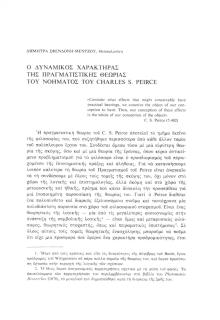
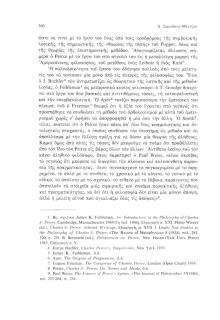
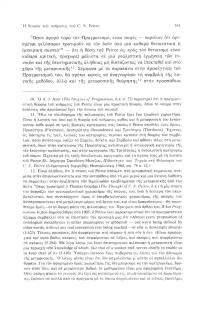
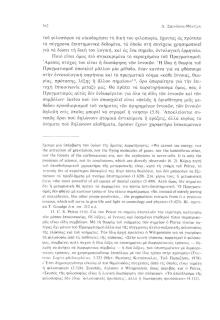
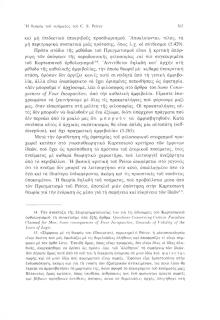
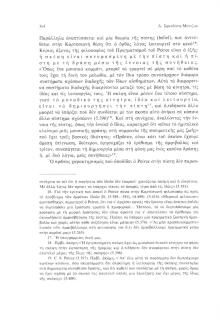
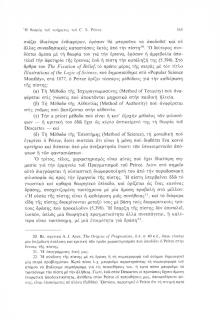
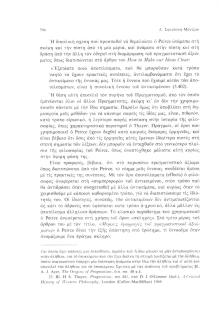
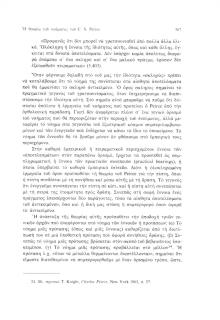
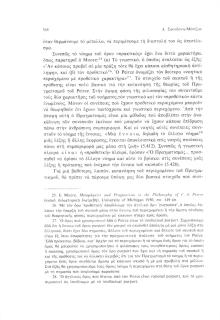
 Ξεφύλλισμα pdf
Ξεφύλλισμα pdf